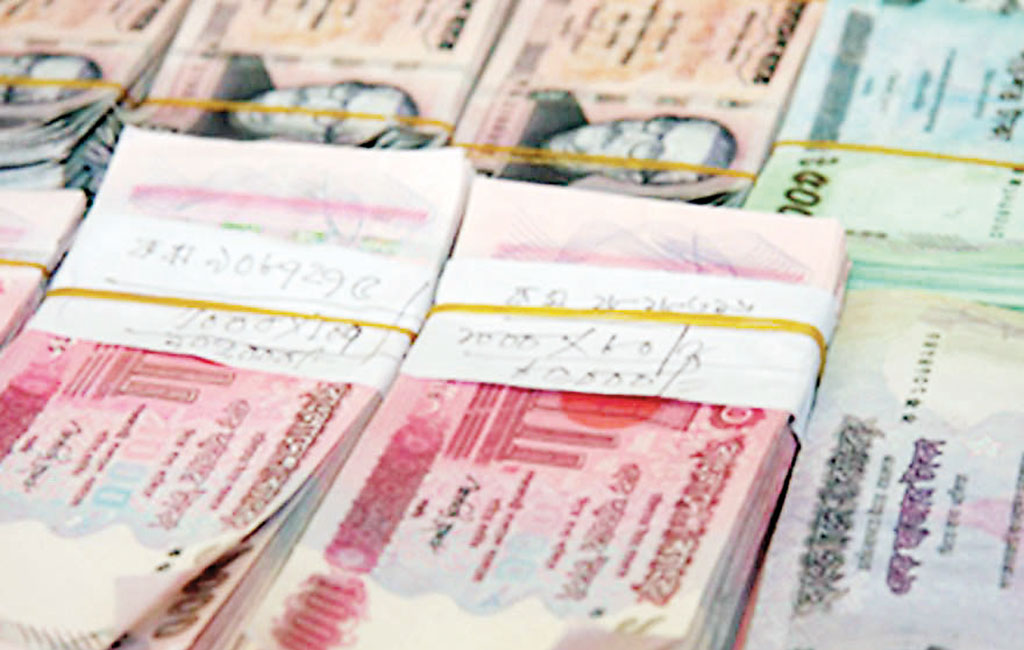
Inflation, a major headache for shrinking deposit dividends

This phenomenon has further been intensified after the implementation of single digit interest rate, for both lending and deposits
Contrary to the past, the dividends from a bank deposit are not enough to bear the rising commodity prices.
This phenomenon has further been intensified after the implementation of single digit interest rate, for both lending and deposits.
According to Bangladesh Bank (BB) and Bangladesh Bureau of Statistics (BBS), the average interest rate on bank deposits in June’21 was only 4.1%, while the average inflation rate in the same month was 5.56%.
Today, if a customer takes the inflation rates into consideration, not only would they be able to enjoy any dividend, but chances would be high that their actual deposit would shrink, as a result.
Say a customer deposits Tk100 into his/her bank account with 5% interest for a year.
If inflation goes up to 6%, then it will also increase commodity prices.
This means that after keeping Tk100 in the bank for a year, they will get Tk5 as profit, and a grand total of Tk105.
But with the 6% inflation rate, commodity prices which cost Tk100 are now going to cost Tk106.
Hence, the Tk5 profit is not going to be of great help in buying goods by then, rather forcing the depositor to incur losses.
Add the 10-15% income tax at source and the remaining balance is rather depressing.
This is why customers are shying away from keeping their money in savings accounts, being aware of the low deposit rates.
This has paved the way for higher demand in savings certificates.
Latest data from the Directorate of Nationals Savings (DNS) showed that in the first 11 months (July-May) of FY 2020-21 the total sales of savings certificates were Tk99,557 crore, breaking the previous record of Tk90,342 crore in FY 2018-19.
Asked about the shrinking dividend rates, bank officials said that low demand for loans is a major reason for falling rates.
If the situation improves, the interest will increase. Then the depositors will also get good interest. But they will have to wait for this to take effect, they added.
Former caretaker government's finance adviser AB Mirza Azizul Islam told Dhaka Tribune earlier that in the current economy, inflation is higher than the interest rate on deposits.
“Now the interest rate on bank deposits has come down to below 6%. If the interest on the deposit is less than the inflation, then keeping the deposit in the bank is not a viable option,” he also said.
"If this situation continues, the habit of saving may decrease in the future. This is a loss for the depositors, the impact of which has already begun to fall on the bank’s deposits.
“In addition to savings certificates, risky investments in non-bank financial institutions are also on the rise. For this we have to think about keeping the interest rate for deposits at a reasonable level. At the same time, we need to make life easier by reducing inflation," he added.
At present, there are four types of savings certificates in circulation in the country, giving 11.28-11.76% interest.
Among them, the profit rate of family savings certificates is 11.52%, five-year Bangladesh savings certificates 11.28%, three-month profit-based savings certificates 11.4%, and pensioner savings certificates 11.76%.
Editor & Publisher: S. M. Mesbah Uddin
Published by the Editor from House-45,
Road-3, Section-12, Pallabi, Mirpur
Dhaka-1216, Bangladesh
Call: +01713180024 & 0167 538 3357
News & Commercial Office :
Phone: 096 9612 7234 & 096 1175 5298
e-mail: financialpostbd@gmail.com
HAC & Marketing (Advertisement)
Call: 01616 521 297
e-mail: tdfpad@gmail.com